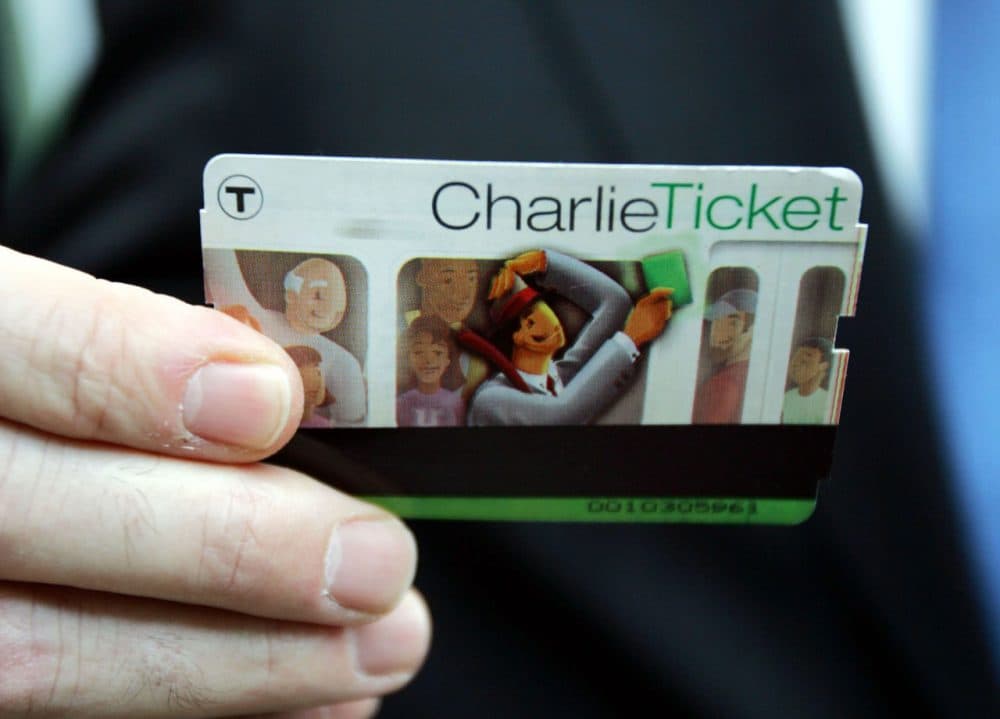Advertisement
MBTA Workers Speak Out Against Plans To Privatize Services

MBTA workers and union leaders spoke out Wednesday against a plan by T officials to privatize some services — which could affect about 250 jobs.
The T's plan calls for privatizing departments that count cash fares, maintain fare collection machines and conduct marketing and other corporate services.
The Boston Carmen’s Union Local 589 said the plan will push hardworking people out of jobs.
"Each one of them takes immense pride in their jobs and what they do each day," said James O’Brien, president of the Carmen's Union, which represents over 4,100 MBTA employees.
Transit officials say the plan will help control costs, improve customer service and modernize the T's technology by partnering with "best-in-class private companies."
“These are the sorts of functions long-term that we feel will be better served from the outside,” T chief administrator Brian Shortsleeve said at the MBTA fiscal management and control board meeting Wednesday.
The Boston Carmen’s Union said 165 cash handling and fare collection jobs would be jeopardized. This includes technicians who repair fare collection equipment and workers in the MBTA’s Charlestown office known as the “money room.” Workers in that facility count MBTA fares, Mass Pike tolls and parking meter deposits from the city of Cambridge. The union represents 77 of these jobs that would be eliminated and given to private companies under the plan.
Some of those employees spoke out at Wednesday's meeting.
“I just want you to put a face to a job you’re about to cut," T employee Antrynette Hobbs told the control board. "We work extremely hard. Understand this affects the whole family, the whole home.”
Hobbs has worked for the MBTA for 18 years and currently works in the "money room."
Shortsleeve said some employees may be able to fill other jobs at the T.
"In many cases, there are folks in these current roles that we could find other roles at the MBTA," Shortsleeve said.
O'Brien, the Carmen's Union's president, questioned whether privatizing fare collection and cash handling services would have "real cost savings."
"What the private companies don't tell us upfront is the cost we will be burdened with by way of additional hidden fees that cannot be calculated or predicted," O'Brien said. "We believe that this work is best done by public employees whom we can hold accountable for their work."
Lou Antonellis, the president of the electrical workers union, IBEW Local 103, agreed. He told the control board that employees working in fare collection services go through strict background checks, skills testing and are licensed.
"They’re also local people," Antonellis said. "They have ownership, they have skin in the game and I believe that value that they bring to the table is immeasurable. It's not something that you’ll find on a spreadsheet and it’s not a figure or number that you can slash with a red pen."
T officials said they don't yet have an estimate on how much money would be saved under the privatization plan.
The T is also looking to outsource its management of warehouse logistics, employee leave and telecommunications. It's also looking to outsource its transit police dispatch, though Shortsleeve says that change would not save any money. The T is also looking for savings by seeking new bids for its cleaning and elevator services, which are currently outsourced.
Shortsleeve said 13 companies have already indicated an interest in working with the T's on its automated fare collection services. Though there still needs to be a formal bidding process for that.
The plan to privatize fare collection services comes as the MBTA continues to look for ways to close a projected $242 million budget gap in fiscal year 2017.
Steven Tolman, the president of the Massachusetts AFL-CIO, said T workers need to be shown more respect as the transit agency works towards balancing its budget. In a fiery speech that received a round of applause, Tolman said he's tired of seeing negative stories in the media about T workers and the board shouldn't be considering cutting the jobs of the people trying to make the system work.
"We shouldn’t be trying to balance the T by privatizing good decent paying jobs, and making the public think that that’s going to be the answer to not properly funding a public transportation system," Tolman said.
The plan is a major step in privatizing parts of the beleaguered transit agency — something Gov. Charlie Baker opened the door for last year when he persuaded the Legislature to suspend the so-called “Pacheco Law,” which blocks the state from privatizing certain government functions. State lawmakers agreed to temporary suspend the privatization law specifically for the MBTA.
The T is also considering privatizing some bus routes, though transit officials have said there wouldn’t be any layoffs.
